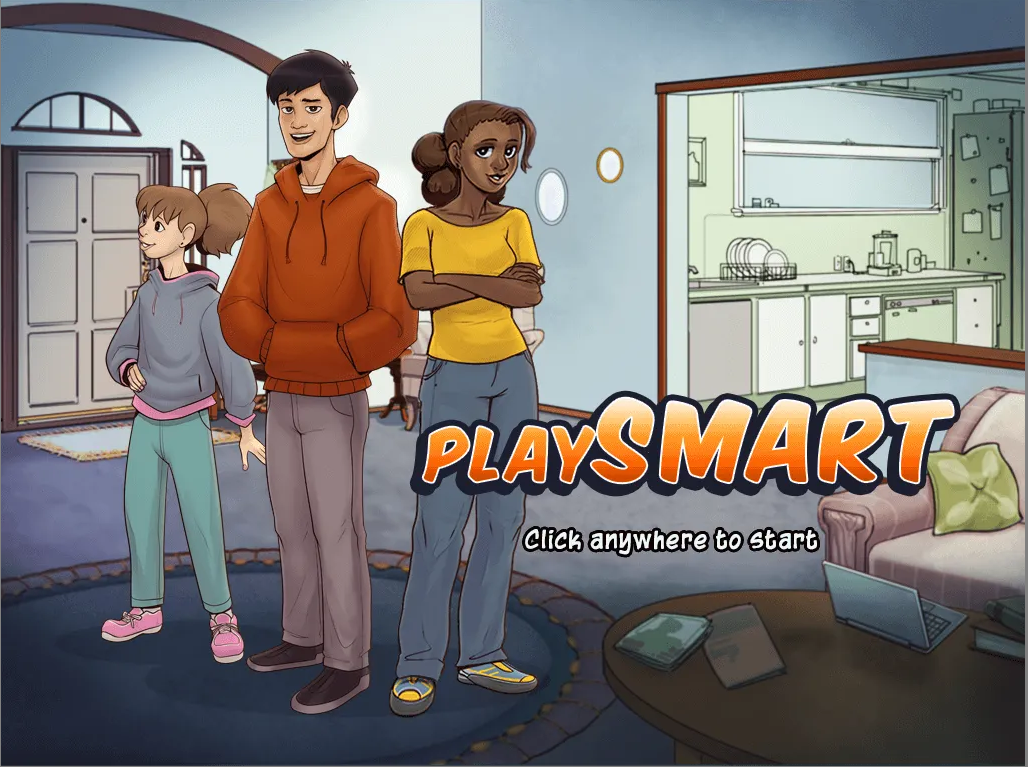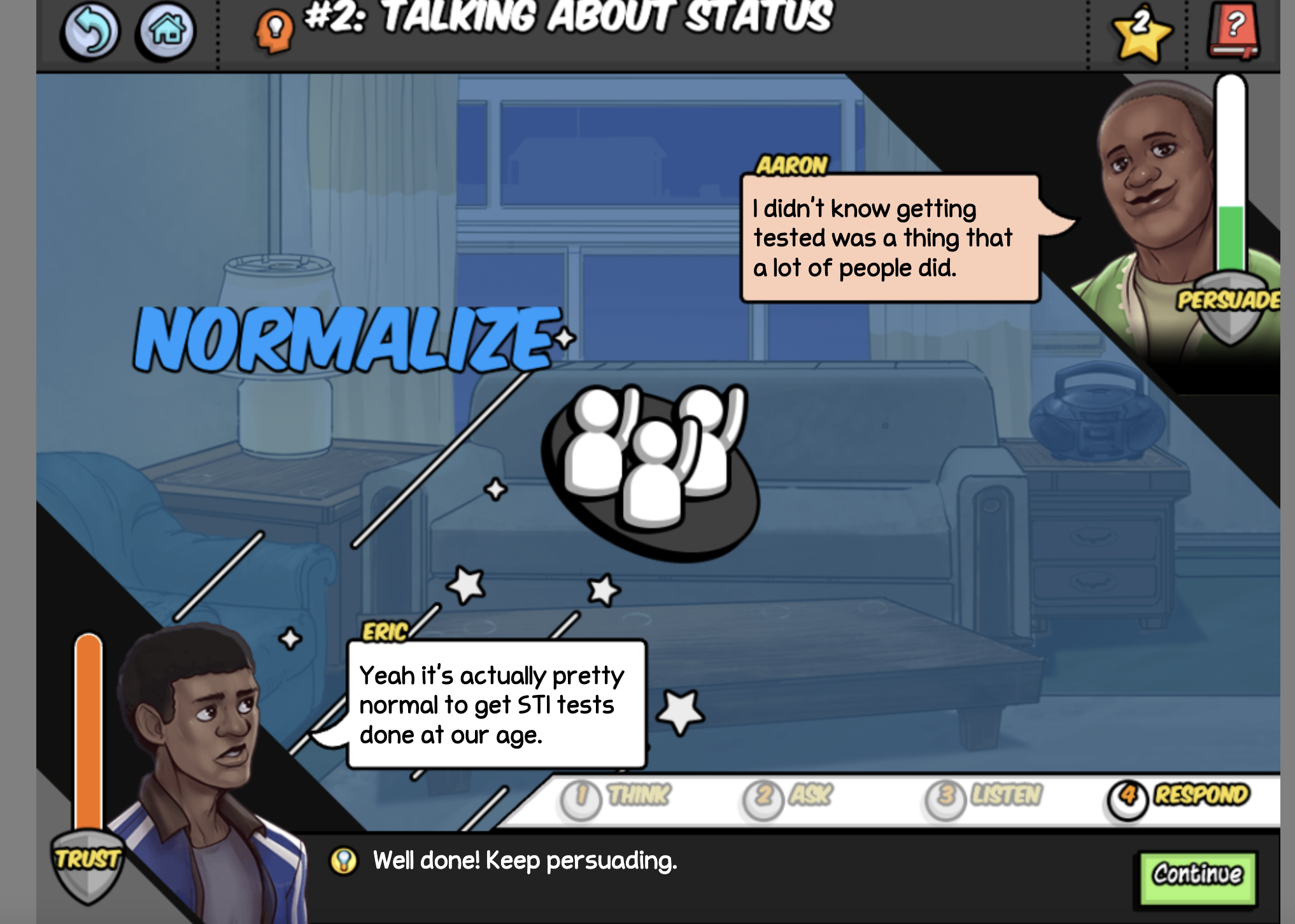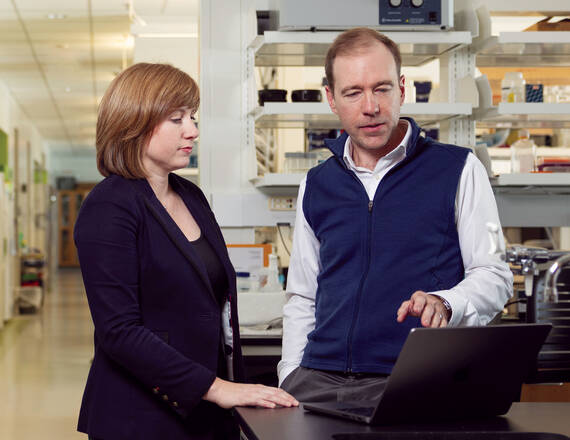The Power of Play: How one doctor turned to video games to prevent health issues
Lynn Fiellin, MD, had heard it over and over from patients she was treating for addiction and other related conditions: ‘If only I knew as a kid what I know now.’
So Fiellin decided to test that proposition. Could she find a way to effectively communicate adult lessons to children, and in doing so prevent them from ever facing addiction, sexually transmitted infections like HIV, or other negative health outcomes?

Meanwhile, at home, Fiellin was also trying to instill healthy behaviors and decision-making skills in her three children, who ranged in age from nine to 19 at the time. “They really gave me a very front row seat to all the stuff adolescents deal with, all the risks and struggles and decision-making,” she says.
Fiellin noticed that her children were enthralled by video games—so much so that it could be difficult to get them to come to dinner sometimes. “It was clearly so compelling, and it struck me that maybe this could be the vehicle to deliver that type of prevention intervention,” she says.
Now, Fiellin builds games to prevent those ‘what I wish I knew’ moments, leveraging the power of play to instill healthy behaviors in young people around the globe. And it’s working.
“There are enormous opportunities for learning through play,” says Fiellin, a professor in the departments of biomedical data science, medicine, and The Dartmouth Institute for Health Policy and Clinical Practice at the Geisel School of Medicine at Dartmouth. “It has the benefit of allowing kids to experiment, explore, test—you can’t necessarily test things in real life. So, play creates this environment for exploration and testing.”
Fiellin founded the play2PREVENT Lab when she was a faculty member at the Yale School of Medicine. Fiellin and the laboratory moved to Dartmouth in late 2023, with plans to expand her work, in affiliation and collaboration with the Center for Technology and Behavioral Health (CTBH) at Dartmouth.
Fiellin’s lab has had a decade long relationship with CTBH. “I’m thrilled to now be a part of the center, given the extensive opportunities for collaboration and partnerships with faculty who focus their work on technology and behavioral health as well as the larger Dartmouth community,” she says of officially joining Dartmouth and the center.
Beyond ‘just say no’ education
Over the past 15 years, Fiellin and her team in the play2PREVENT Lab have developed, tested, and deployed five video games. Designed for adolescents and young adults, these games address a range of issues from opioid use, to sexual health, to mental well-being and resilience, and focus on risk prevention, skill-building, and social intelligence. The games are designed to mimic real life, with the many, complex pressures a young person would experience.
That means players aren’t just presented with a single, one-off scenario. Instead, with story-based role-playing games, a player must become a character and navigate a series of interconnected situations during which their decision-making affects other aspects of their trajectory in the game world.

In the games, players must first navigate a trajectory for their character that leads to the more problematic health outcomes. Then, the game takes them backward through moments of decision-making and explores what might’ve happened if they’d made different choices. This allows them to see many possible branching trajectories.
This approach takes the lessons embedded in the gameplay beyond simplistic messaging such as ‘just say no’ (to drugs, sex, violence, cheating on a test, or any other seriously harmful behavior), and into the realm of the less obvious behavioral choices that can nudge a person in a riskier or healthier direction.
For example, in one scenario, a character is being offered opioid pain medication for wisdom tooth extraction. The game offers the player a way to role-play a common experience for adolescents, navigating a conversation with their dentist about pain management, cluing the player into the risks of potential addiction to opioids when prescribed.
“This gives [players] an opportunity to gain accurate knowledge, as well as learning skills” for difficult conversations, Fiellin says. “How do you talk to a healthcare professional without feeling like you’re being rude? How do you develop the sense of agency that, ‘I’m allowed to ask these questions, and I’m allowed to gently and respectfully push back and say, let’s do something besides opioids?’”
Players also aren’t given just one way to say no to unhealthy choices, an acknowledgement, Fiellin says, of the complex social consequences and pressures a young person faces. For example, a player might be given the option to use humor to deflect from peer pressure, or to use a parent saying ‘no’ as an excuse so as not to risk a friendship—much like Fiellin herself remembers doing when she was a child and she didn’t want to sleep over at a friend’s house, so as not to hurt her friend’s feelings.
“None of these experiences are in a vacuum. Kids want to maintain their social circles, they want to maintain their friends,” Fiellin says. “That’s why the whole ‘just say no’ approach doesn’t work. They need to do it in such a way that they save face.”

Although the gameplay is largely geared toward learning healthy decision-making around drugs and alcohol, sexual health, mental health, and other specific healthcare topics, the games also more subtly include ways to work on social skills and critical thinking in other contexts. For example, in one game, a player engages in hurtful gossip behind a friend’s back, and experiences social consequences of a rift caused by breaking their friend’s trust.
Games that transcend: Signs of success
The games are not available on any app stores. Rather, they’re deployed largely by request. In most instances, they’ve been offered as part of health class curriculums in schools.
Requests to use the games come from educators, youth organizations, clinicians, parents, and even kids. Modifying them for distinct cultural contexts and needs, Fiellin and her team are meeting requests for the games around the globe, including in Australia, South Africa, Vietnam, Rwanda, and more countries. She says they’ve given out more than half a million logins since the games have been available.
“They transcend geography,” Fiellin says. “Kids everywhere love to play.”
But the games’ popularity isn’t their only measure of success. Randomized controlled trials of the games suggest that they increase players’ attitudes, beliefs, perceptions, and knowledge of a given behavioral health area. In one study, participants were tested on their beliefs and knowledge about tobacco use after playing the play2PREVENT Lab’s game smokeSCREEN. After just four hours of play over four weeks, players demonstrated a notable increase in knowledge and aversion to tobacco use. Another randomized control trial focusing on a risk reduction and HIV prevention game called PlayForward: Elm City Stories found that one year after completing an average of 10 hours of play, test subject players demonstrated a significant increase in sexual health knowledge and attitudes compared with players in a control group.
The games already launched by the play2PREVENT Lab address vaping and smoking (smokeSCREEN), opioid misuse and mental health (PlaySmart), STI/HIV testing and sexual health (PlayTest!), risk reduction and HIV prevention (PlayForward: Elm City Stories), and mental health and overall well-being (empowerED). They are all distributed by Playbl, Inc., a startup Fiellin created in response to significant demands for the games to support their marketing and distribution.
Fiellin and her Playbl team have been participating in this year’s cohort of the Dartmouth Innovations Accelerator for Digital Health (DIADH), which provides Dartmouth innovators access to support, entrepreneurial guidance, and the infrastructure and tools to shepherd their innovations in digital health into the marketplace. Playbl won the top prize in the DIADH pitch competition earlier this month, and the team was awarded $75,000 to expand marketing and distribution of the play2PREVENT Lab games.
Game development begins with Fiellin and her team gathering focus groups of teens. From those dialogues, the team gleans stories about healthy (and unhealthy) decision-making and identifies blind spots in the teenagers’ health knowledge. They use stories from the real lives of their adolescent partners to build the games, in partnership with experienced video game developer Schell Games, and incorporate feedback from the teens to make the games as relatable to the target audience as possible. They even give the focus group disposable cameras to document what they see in their daily lives. These images are used by the game developer to ensure everything in the virtual world, including neighborhoods, schools, bedroom décor, fashion, and hairdos, reflects the real-world spaces where players spend time.
Fiellin’s research has been funded in great part by the National Institutes of Health, most recently through the National Institute on Drug Abuse-funded Helping to End Addiction Long-term (HEAL) Initiative. The play2PREVENT Lab has also received funding from the Food and Drug Administration, the CVS Health Foundation, and the Best Foundation.
In her new position at Dartmouth and CTBH, Fiellin is building out her focus on mental health in youth and its interface with substance misuse, as well as translating her video games research to specific populations in other parts of the world.
“What CTBH does is exactly what I have been doing in my lab for the past 15 years,” Fiellin says. “It is a natural place for me to be and only acts to enhance all of my current and future work.”
To learn more about the Center for Technology and Behavioral Health, please contact Bethany Solomon at 603-646-5134 or at Bethany.Solomon@hitchcock.org.
